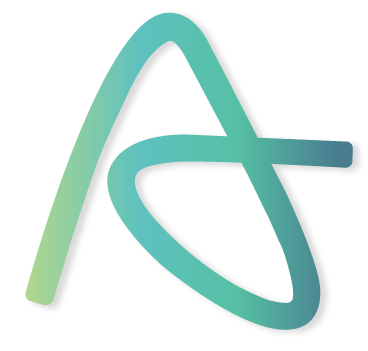Aurora
| This page is a work in progress. We welcome your feedback. Please use the discussion page for suggestions and comments. When the page is approved and finalized, we will send it for translation. |
 Aurora design system logo | |
| Aurora design system | |
|---|---|
| Developer | Digital Collaboration Division |
| Initial release | September 24, 2018 |
| Latest version | V1, September 24, 2018 |
| Website | [1] |
| GitHub repository | Github Repository |
Aurora design system is a central design guide developed in 2018 by the Digital Collaboration Division within the Treasury Board of Canada Secretariat of the Government of Canada. It was built through a collaborative effort between various designers, developers and writers across the Government of Canada.
Lead by the Digital Collaboration Division at the Treasury Board of Canada Secretariat, Aurora design system was created in collaboration with the Canadian Digital Service: Talent Cloud, Immigration, Refugees and Citizenship Canada, and other individuals within Government of Canada. Aurora design system was created to standardize the visual language and user experience of the Open Accessible Digital Workplace's online applications and tools.
Overview
Aurora design system is a catalogue of user interface elements, writing style, guiding principles, coding standards, visual design, etc. for use in the Open Accessible Digital Workplace's applications. It was built in the open with contributions from developers, designers, writers and data scientists. Aurora design system is an ongoing project and will continue to be iterated on to increase the number of components available, expand its code and documentation, and improve its user experience attributes.
Mission Statement
Make a design system for the Government of Canada’s digital collaboration tools that can also be reused and applied to other public or internal digital services and products. This system will help to ensure a seamless experience for users across platforms, will be easy to use, and quick for developers and designers to implement. The design system will provide a basic framework with guiding principles and components, with the ability to be adapted to other brands and needs.
Principles
Aurora design system adheres to the following principles:
- Simple and flexible: Provides all necessary elements without being restrictive. Aurora Design System is a lightweight system that can be adapted to suit a specific product.
- Fun to use: Makes the job of developers and designers easier rather than add extra burdens or obligations to follow. Aurora Design System has an aesthetically pleasing design that is easy to navigate and adapt.
- Re-usable: Suits a variety of needs. All components and principles are generic enough to be applied to a wide range of digital products. Code and design elements can easily be extracted to create new products, and communications guidelines are easy to understand and follow.
- Diverse: Covers a variety of needs and types of products. Aurora Design System follows necessary Government of Canada obligations such as official languages and accessibility
- Technology agnostic: Applicable to any technologic framework that a team decides to use for their project.
- Open: To anyone who wishes to use it. All of Aurora Design System’s code is open source, and all other guidelines and elements are free to copy.
Project Team
| Role | Name(s) | Team | Contact Information |
|---|---|---|---|
| Project Leads | Genevieve Lemieux | Digital Collaboration Division | genevieve.lemieux@tbs-sct.gc.ca
sierra.duffey@tbs-sct.gc.ca |
| UX Researchers | Rebecca Jeong
Alex Mesley Donna Monbourquette |
Digital Collaboration Division | rebecca.jeong@tbs-sct.gc.ca
alex.mesley@tbs-st.gc.ca donna.monbourquette@tbs-sct.gc.ca |
| Front-End (UI) Developers | Ethan Wallace
Simon Roy Omar Nasr Daniel Spence |
Digital Collaboration Division
Health Canada Canada Revenue Agency |
ethan.wallace@tbs-sct.gc.ca
nicholas.pietrantonio@tbs-sct.gc.ca stephanie.lefebvre@tbs-sct.gc.ca simon.roy@tbs-sct.gc.ca omar.nasr@canada.ca daniel.spence@cra-arc.gc.ca |
| Graphic Designers | Michael Martel Sabrina Rowland-Cote Chuma Asuzu |
Digital Collaboration Division IRCC |
michael.martel@tbs-sct.gc.ca sabrina.rowland-cote@tbs-sct.gc.ca michael.asuzu@cic.gc.ca |
| Technical Writers | Marianne Aubrey
Nneka Nnagbo |
Digital Collaboration Division
Canada Revenue Agency |
marianne.aubrey@tbs-sct.gc.ca
nneka.nnagbo@cra-arc.gc.ca |
| Partnership Liaison | Heather Laird | Digital Collaboration Division | heather.laird@tbs-sct.gc.ca |
| Consultants | Sean Boots
Thomas Gohard Paul Jackson Gerardo Escandon |
Canadian Digital Service
OneGC (TBS) OneGC (TBS) Talent Cloud |
sean.boots@tbs-sct.gc.ca
thomas.gohard@tbs-sct.gc.ca paul.jackson@tbs-sct.gc.ca |
Versions
Version one
Released on September 24th, 2018, the first version of Aurora design system included components, as well as best practices for written content and data visualization.
Components in version one
Version one included HTML code, design elements and documentation for the following components:
| Component Type | Component |
|---|---|
| Visuals | Colour
Icons Typography |
| Standard | Avatars and thumbnails
Badges Buttons Cards Divider/rule Grids and spacing System messaging Tags, chips and pills Tooltips |
| Navigation | Breadcrumbs
Back to top Links Pagination and scrolling Search |
| Forms | Form design and labels
Button inputs Errors and validation File upload Progress indicators Text inputs |
Content and data
Aurora contained content guidelines and data visualization styles, and best practices for the following topics:
| Category | Topic |
|---|---|
| Content guidelines | Reading level and plain language
Spelling Addressing users Referring to product owners and the Government of Canada Useful tools |
| Content formatting | Aurora follows the Canadian Press Style Guide:
Capitalization Dates, numbers and addresses Time Units of measurement Ampersands Commas, ellipses, colons Slashes and hyphens Bold and italics Quotation marks |
| Glossary | Containing definitions of words commonly used by the Digital Collaboration Division. |
| System vocabulary | Containing definitions of words appearing in Aurora and its tools. |
| Data overview | Best practices of data visualization
Multiple formats Labels Colours and textures Stylized numbers |
| Choosing visualizations | Tables
Bar and column graphs Line graphs Scatterplots |
| Legends and tooltips | Side aligned legend
Bottom aligned legend |
Research
Studies conducted by the Digital Collaboration Divison
- Mood Board Survey
- Card-Sorting: Information Architecture
- Report: Typography and Data Visualizations
- Final Architecture for Design System
